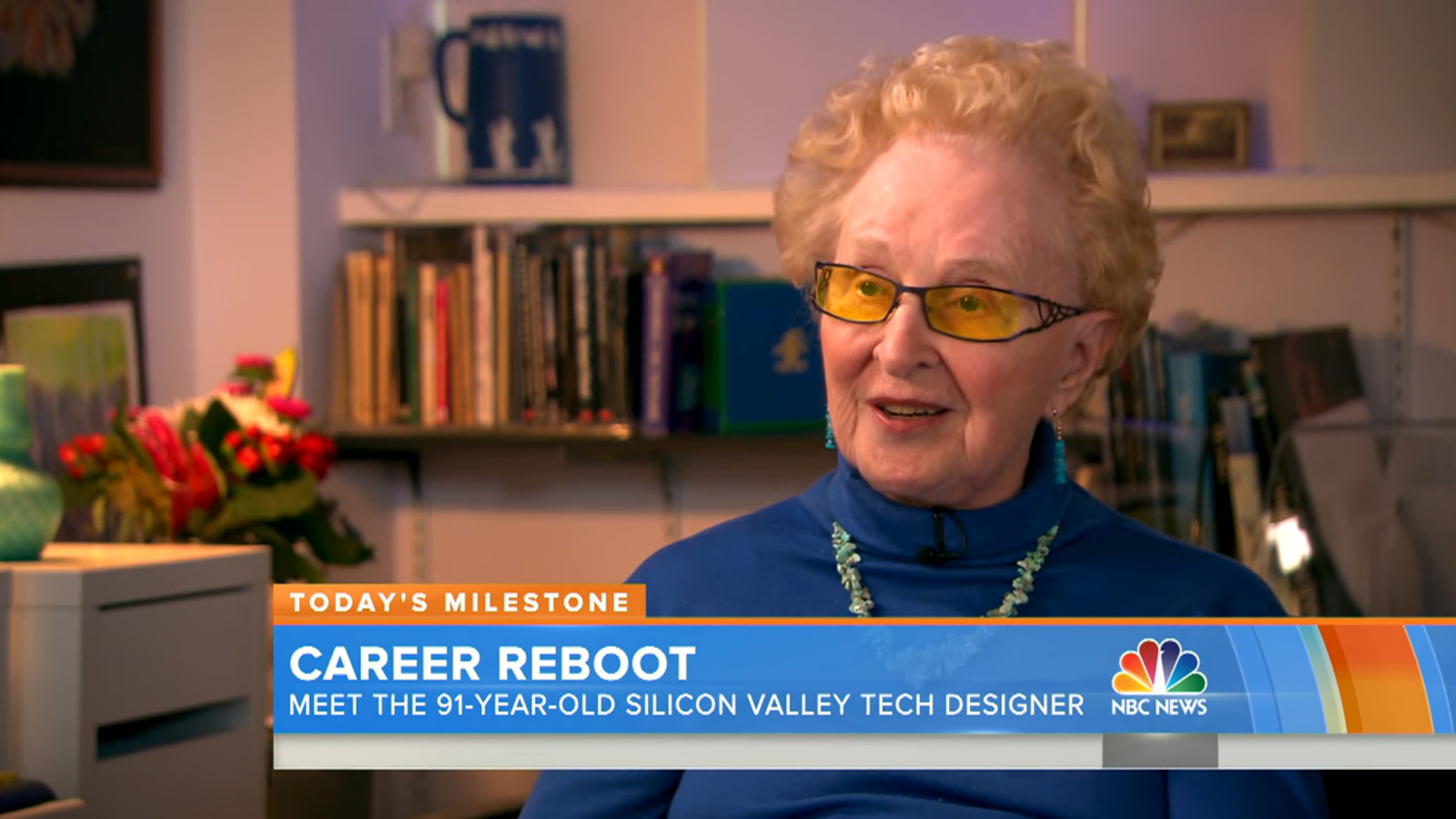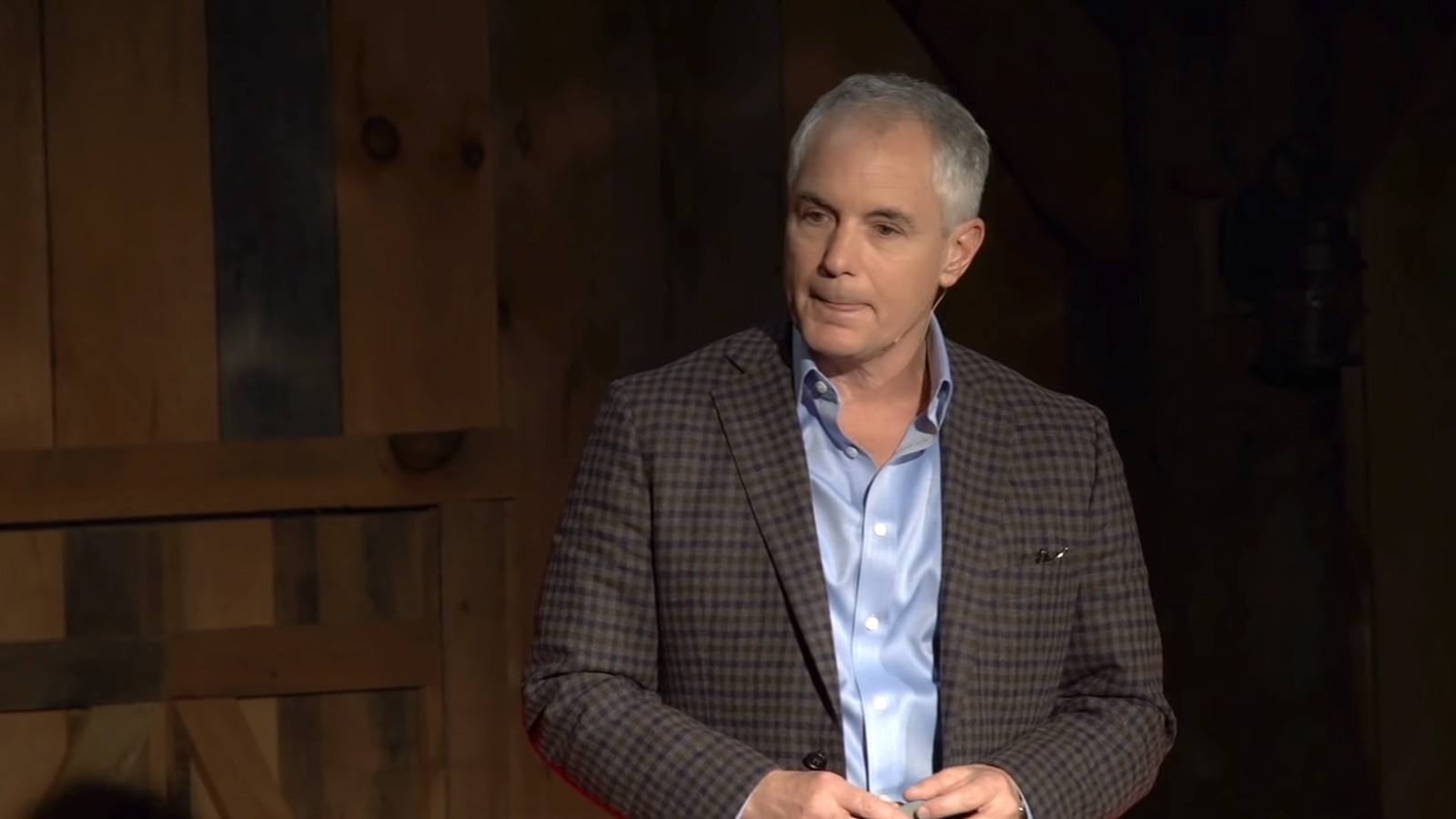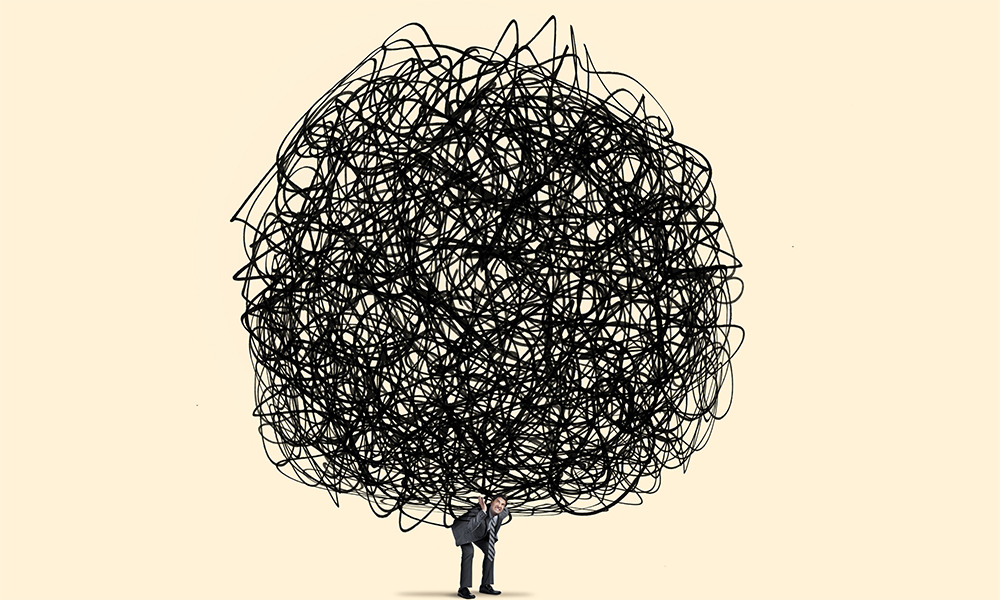For most of our parents, it was assumed that they would retire by the time they were 60. However, things are changing rapidly. People are now living longer and working for longer than any other time in history. The World Health Organisation’s research shows that global average life expectancy increased by 5 years between 2000 and 2015. This has changed the way we think about what is middle and old age. And according to the latest data from the U.S. Bureau of Labor Statistics, close to 20 percent of Americans over the age of 65 are working, a trend that is only set to pick up pace.
While a lot is discussed about millennials at the workplace, there probably hasn’t been enough attention given to what it takes to manage careers over a longer time frame. This is more relevant than ever today – to think about how to sustain productive and enriching careers.
So, drawing from this, my message this week is on how to stay relevant and thrive as you get older. If you are in your fifties or perhaps, even in your forties, that is something to start thinking about.
It may not be intentional or fair, but there are all kinds of unflattering stereotypes about older people—that they have less energy, that they are out of touch with the present, that they are less equipped to do twenty-first century tasks. Studies have shown that many of these assumptions are unfounded. Barbara Strauch, in her Harvard Business Review article, Brain Functions That Improve with Age, points out:
“Over the past few years, neuroscientists have begun to zero in on the brain’s changes in middle age, and what they’ve found is encouraging. Results of long-term studies show that—contrary to stereotypes—we actually grow smarter in key areas in middle age which, with longer life spans, now stretches from our mid 40s to our mid to late 60s.
In areas as diverse as vocabulary and inductive reasoning, our brains function better than they did in our 20s. As we age, we more easily get the “gist” of arguments. Even our judgment of others improves. Often, we simply “know” if someone—or some idea—is to be trusted. We also get better at knowing what to ignore and when to hold our tongues.”
Still, no matter what the research says, the stereotypes persist. For those who have crossed the fifty-year mark, this can be extremely frustrating. It also poses an organisational hurdle, getting in the way of effective cooperation across age-groups. With the traditional boundaries and sequence of education, work and retirement becoming blurred, people of diverse ages are working in closer proximity than ever before.
A recent movie, The Intern, explores the issue of what age has to offer youth. The story traces the journey of a retired successful business owner (Robert De Niro) who decides he wants to get back to work. As he puts it, “I read somewhere that musicians don’t retire. They stop when there’s no more music in them. Well, I still have music.” He soon finds the position of a “senior” intern at an e-commerce startup, run by a twenty-something CEO (Anne Hathaway). Although the youngsters are initially sceptical, the “senior citizen” soon becomes indispensable to the company, bringing to the table his years of experience in the world of business. The seventy-year-old intern also enjoys the youthful company of his colleagues, learning to see the world through their perspectives and passing on lessons learned over a lifetime.
Fortunately, you don’t need to rely on anyone else to ensure that you stay integrated in the organisation; you can be proactive and act to dismantle any incorrect age-related assumptions about you.
In her article, How Older Workers Can Stay Relevant in the Office, Lindsay Broder suggests that older team members adopt an “Occupreneur” approach:
“An OccupreneurTM is someone who manages his or her career as an entrepreneur would manage a business. Entrepreneurs don’t sit around waiting for someone to make decisions about their careers. They stay on their toes by reinventing and finding new ways to serve their clientele…. If you’re an employee who feels that your career is dependent on the decisions made by others, or feel that you have no power over your employment status, it might be time to change your frame of mind. Attitude is everything: If you believe you’re a valuable asset, then act like one.”
So, if you’re worried about staying relevant at work as you grow older, it’s time to take matters into your own hands and make sure people see how much you still have to offer.
Here are seven ways to ensure that you continue to grow, contribute, progress and learn:
1. Collaborate with the “kids”
Instead of viewing your younger colleagues as either incompetent or a threat, try teaming up with them. This is a great way to find common ground and learn to work together effectively. Keep in mind that while you may be battling stereotypes based on your increasing age, you might also be making assumptions about your younger colleagues. Perhaps you think that millennials are unwilling to work hard, don’t take their jobs seriously, or are disrespectful towards all forms of authority.
However, in my experience, these notions are as unfounded as those about older people. If you approach your younger colleagues with an open mind and the willingness to engage in meaningful conversation, you might be surprised at how much you can learn from them. Plus, have a chance to share your own wisdom with them.
2. Embrace change
The older we get, the more likely we are to resist anything that’s new and unfamiliar. It’s important to develop a certain self-awareness about this. For instance, if you find yourself resisting change, ask yourself: am I against this because I genuinely think it won’t work? Do I need to know more about it before I make up my mind? Does my hesitation stem from reason, or fear?
In his Forbes article, Five Ways Older Workers Can Stay Relevant In The Future Of Work, Jacob Morgan recommends getting on board even if you’re unsure:
“Listen to new ideas, and be willing to give things a whirl even if you aren’t 100% certain they’re right for you…[for example] for many jobs there’s very little value in the “face time” culture of everyone sitting at a desk in an office for eight to 10 hours a day five days a week. Don’t cling to traditions just because you can’t imagine any other way to work.”
3. Foster a growth mindset
If you’re worried about lagging behind, you’re certainly not alone. Anxiety about keeping up isn’t limited to those in their fifties and sixties. Research shows that a majority of people over the age of thirty worry about the rapidly changing demands of the workplace. Technology is a particular area of concern, given how omnipresent it has become in jobs, as well as how fast it keeps changing. Fortunately, technology also offers a way to keep developing your skill set!
Websites like Coursera and Udemy offer high-quality MOOCs (Massive Open Online Courses) on a range of skills and subjects, from digital marketing and data science, to game theory and modern literature. Leading universities like Stanford and Yale also provide a number of online courses, open to people around the world. This is an easy and flexible way to explore and keep up with new practices and knowledge. All you really need is a bit of curiosity and the willingness to learn.
4. Leverage your experience
Age and experience give you certain strengths that are rare among young people. For instance, if you have dealt with multiple ups and downs in the course of your career, you will likely be much more resilient in the face of a crisis and better equipped to deal with it. You are also likely to be generally better at communication, consistency, and being able to see the big picture, having evolved these crucial skills over many years.
Morgan points out the value of good old-fashioned networking—a skill at which most older employees excel, thanks to lots of practice and pre-Internet job hunts:
“Even with all the changes business has seen in the last few decades, there’s still a lot of truth to the adage that who you know may be more important than what you know…. Five good connections are worth 50 business card exchanges. Remember the world of work is changing, but just because you are over 50 doesn’t mean you don’t have a place in the workplace. The Future Employee is more about mindset and behaviour than it is about age!”
And if you’re looking for more inspiration, do watch this video
on Barbara Beskind, the 91 year old tech designer who works at IDEO in Silicon Valley. She landed her dream job just a couple of years ago by writing IDEO a letter describing her passion and how she had built up skills over a lifetime!
5. Solicit feedback
Pre-empt the common complaint about being resistant to change by asking for feedback—and acting on it. This is of course applicable for everyone, no matter how old they are. Teams tend to discount older team members who are seen as inflexible and rigid, perceiving them as unwilling or unable to move with the times. Don’t let things come to that pass; instead, take a proactive approach and ask trusted colleagues for constructive criticism. You may need to make some adjustments (for example, become more comfortable with a particular software or begin mentoring younger employees) to remain a supportive part of the organisation.
6. Don’t be a downer
One of the most enduring caricatures of old age is that of the constant complainer. Everyone can picture that old person from television shows or newspaper cartoon strips, forever finding fault with the present and reminiscing about the “good old days”. Let’s be honest: no-one likes being around someone who is always going on about how terrible everything is! Instead of giving in to the tendency to talk about how wonderful the past was, try to find the positives in today’s world or look towards the future.
7. Stay fit
There’s no escaping the fact that physically, our bodies change with age. Many of our lifestyle choices and habits only accelerate this. There’s no shortcut here. You just need to make staying fit a priority. So, pick up that sport again, find a way to work more walking into your schedule, watch your diet. Being physically fit can have a great rub-off overall, not least of all in improving your self-confidence.
If you have older colleagues, here are some suggestions on how you could approach your relationships with them:
- Don’t succumb to stereotyping any more than you would like it done to you. You will only end up making a bunch of (baseless) assumptions.
- Value experience. Look for what people are bringing to the table. Instead of ignoring their experience or even being intimidated by it, try learning from it.
- Be more confident.Don’t assume that older team members don’t respect you and your ideas simply because you’re younger.
- Don’t be dismissive. Just because someone isn’t familiar with something doesn’t necessarily mean that they don’t want to learn about it. Give them the benefit of doubt. Offer to help out and share your learning.
- Empathise more. Try getting to know the person better. Understand where they are coming from. Share more about yourself. It will go a long way in building your relationship.
While we may not have spoken much about this, this is certainly an issue that concerns us all, in one way or another. Today, there is a very real possibility that within a team, members could range from the ages of 20 to 60 years! In such a scenario, if older people are pushed into the background, our organisation will lose out on their invaluable wisdom and experience. So, we do need to think hard about how we make our workplace more inclusive, while also ensuring that each of us stays relevant as we get older.
Do write in with your thoughts and experiences.
P.S. Some of you may find this TEDx video on mid-life renewal quite useful:










Sir, indeed a powerful article on a topic which tends to get pushed to the background on a day-to-day basis, and comes to the fore only when organisational changes are announced, often surprising many and disappointing many. This is because the stereotypes with age are numerous. Often the rationale for a structural change in a company is explained with a simple “we need young blood to lead the organisation and we believe they are ready now”. So with one single statement like that, an entire generation feels undermined/ relegated to the background. Hence, totally agree with your point on seeking that balance within teams with a combination of knowledge, skills and experience. In other words, organisations moving towards being inclusive and relevant.
Thanks for your profound and insightful views on the topic.
Excellent, thought provoking article.
I have noted the following in my diary… A really noteworthy point, to collaborate with kids.
“Keep in mind that while you may be battling stereotypes based on your increasing age, you might also be making assumptions about your younger colleagues. Perhaps you think that millennials are unwilling to work hard, don’t take their jobs seriously, or are disrespectful towards all forms of authority.”
Relevant topic to improve oneself.
Dear Vivek,
Such a timely topic for me, as we start a new year and I just celebrated my birthday on 6th Jan. Valuable insights and interesting perspective. Thanks.
It’s a great motivating lesson about trends changing now globally.